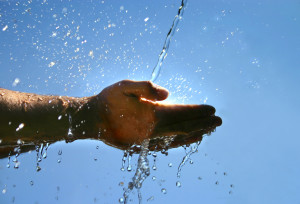A New State Engineer Metering Order has Been Issued for Diamond Valley!

The State Engineer issued Order 1292 on December 8, 2017 concerning underground water rights in Diamond Valley Hydrographic Basin, providing strict requirements for installation of meters, submission of records and access to wells without prior notice. Previous Order Nos. 809 and 813 were issued in 1982 and 1983 generally requiring totalizing meters or effective and authorized substitute measuring devices for permitted wells in Diamond Valley Basin. Order 1292 rescinds these previous orders and replaces them with far stricter requirements.
Order 1292 requires that all wells in the basin be equipped with totalizing meters by April 1, 2018. These meters must be placed in the discharge pipeline near the point of diversion. There are two exceptions under this metering Order: 1) domestic wells, and 2) stockwater wells, unless the permit or certificate requires a meter. Once a totalizing meter is installed, the owner must file a Report of Installation with Nevada Division of Water Resources (“NDWR”) within 30 days. Report of Installation forms can be found at http://water.nv.gov/forms/forms09/Totalizing_Meter.pdf.
Once the meter is installed, or if a meter has already been installed, the owner is required to keep monthly records of the amount of water pumped from each well and submit the records to NDWR within 15 days at the end of each calendar quarter. Meter data and pumpage record forms can be found at http://water.nv.gov/waterforms.aspx?water=Water Use Reporting. Further, pursuant to Order 1292, if a totalizing meter fails or any other deficiency is found in the metering equipment, the owner must immediately correct the failure or the State Engineer can impose fines and penalties. During the period a well owner is making repairs to a meter and is unable to collect meter data and/or pumpage records, the owner shall submit temporary estimations of the amount of water used in the form of a sworn affidavit in lieu of the required meter data and pumpage records.
Order 1292 also states that every groundwater right owner subject to meter requirements must allow and provide access to NDWR, without prior notice, for reading and inspecting meters.
It is widely known that the Diamond Valley Hydrographic Basin is over appropriated and in need of attention. Order 1292 has been issued to provide rules and regulations essential to protect the welfare of the Basin. It is necessary for water right holders to understand the new rules and requirements to ensure each well owner in Diamond Valley remains in compliance. A full copy of Order 1292 can be found at http://images.water.nv.gov/images/Orders/1292o.pdf.

